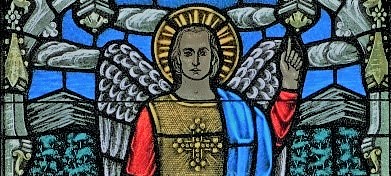Christ, Our King
The earliest Christians identified Jesus with the predicted Messiah of the Jews. The Jewish word “messiah”, and the Greek word “Christ”, both mean “anointed one”, and came to refer to the expected king who would deliver Israel from the hands of the Romans. Christians believe that Jesus is this expected Messiah. Unlike the messiah most Jews expected, Jesus came to free all people, Jew and Gentile, and he did not come to free them from the Romans, but from sin and death. Thus the king of the Jews, and of the cosmos, does not rule over a kingdom of this world.
Christians have long celebrated Jesus as Christ, and his reign as King is celebrated to some degree in Advent (when Christians wait for his second coming in glory), Christmas (when “born this day is the King of the Jews”), Holy Week (when Christ is the Crucified King), Easter (when Jesus is resurrected in power and glory), and the Ascension (when Jesus returns to the glory he had with the Father before the world was created).
The Feast of Christ the King was established as an antidote to secularism, a way of life which leaves God out of man’s thinking and living and organizes his life as if God did not exist. The feast is intended to proclaim in a striking and effective manner Christ’s royalty over individuals, families, society, governments, and nations. In a chaotic and unjust world that seems to scorn any kind of authority, we Christians proudly celebrate Christ the King Sunday, where the loving and merciful – and just – king of the universe is praised and glorified.


